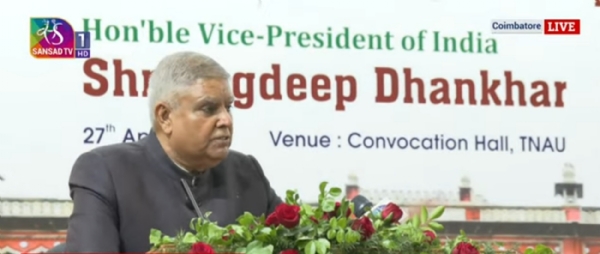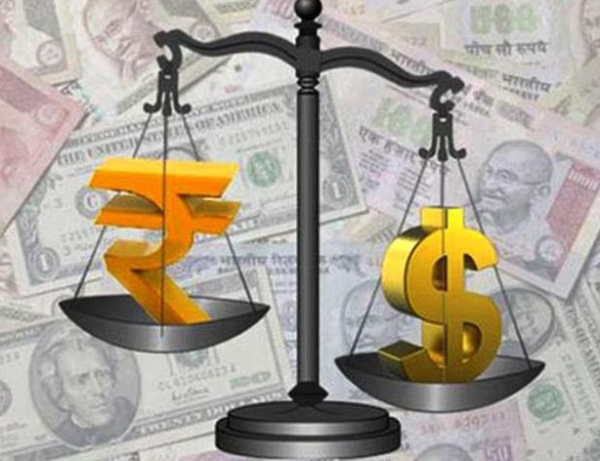
Delhi, 27 April (H.S.): Vice President Jagdeep Dhankhar, emphasized that Bharat is the world’s oldest civilization, rooted in peace, inclusivity, and freedom of expression. Speaking at Tamil Nadu Agricultural University in Coimbatore on Fostering Agri-Education, Innovation, and Entrepreneurship for Viksit
, he highlighted the importance of these values in shaping the nation. He noted that current levels of inclusivity and expression in Bharat are unparalleled, asserting that as citizens of the world’s largest democracy, it is essential to treat these freedoms as national assets.
Regarding agriculture, he advocated for a shift from food security to farmer prosperity, urging farmers to engage actively in marketing their produce rather than solely producing. He stressed the necessity of empowering farmers through awareness and cooperation, underscoring the significance of farmer entrepreneurship. Dhankhar pointed out that farmers must adapt their mindsets to become value-adders rather than just producers, enhancing the economic landscape through added value in the farming sector.
He concluded by stating that every citizen plays a vital role in sustaining India’s impressive economic growth, infrastructure development, technological advancements, and the nation’s international reputation under the leadership of the Prime Minister.
Bharat represents the world’s oldest civilization, embodying a culture of peace, inclusivity, and freedom of expression. Currently, the nation enjoys one of the highest levels of expression and inclusivity globally.
The Vice-President of India emphasized the importance of active citizen participation, urging all citizens to embrace and leverage the current ecosystem of hope and possibility, reinforcing that the commitment to the nation must be paramount. He articulated the necessity of connecting agricultural research and technology to farmers, proposing that the gap between lab and land must become a seamless integration. This can be achieved through the vibrant Krishi Vigyan Kendras, which should serve as educational hubs for farmers.
The Vice-President praised government initiatives like PM Kisan Nidhi Samman, highlighting that these innovative schemes are essential justice measures for the agricultural sector. He pointed out that directing fertilizer subsidies to farmers could significantly benefit them financially.
Furthermore, he called on institutions like Tamil Nadu Agricultural University to play a crucial role in advancing the vision of Viksit Bharat, recognizing its significant contributions to food security. Reflecting on the journey from food scarcity to abundance, he honored notable alumni who have shaped the agro sector.
The Vice-President highlighted India’s evolution from food scarcity to abundance, crediting Tamil Nadu Agricultural University (TNAU) for its pivotal role in agrarian development and rural transformation. He paid homage to Dr. M.S. Swaminathan, an exemplary alumnus of TNAU and a luminary in the agricultural sector, who earned all four civilian awards, including the Bharat Ratna.
Emphasizing the need for impact-oriented innovation in agriculture, he urged that research initiatives be evaluated for their practical effects on farmers. He stressed that research should be aligned with real needs and supported not only by government but also by industry and commerce.
Concluding, the Vice-President reaffirmed India as an agricultural nation, stating agriculture is vital for employment and the economy, and that farmers are essential to national stability. He drew upon Tamil Nadu’s rich history, referencing the poet-saint Thiruvalluvar, who revered farmers as humanity’s cornerstone and the architects of our future.
In attendance were dignitaries including Tamil Nadu’s Governor, ministers, and officials from TNAU, emphasizing the collaborative spirit in advancing agricultural innovation and respect for the farming community’s critical role. The Vice-President articulated that farmers are the true custodians of our destiny and sustenance.
Hindusthan Samachar / Jun Sarkar





